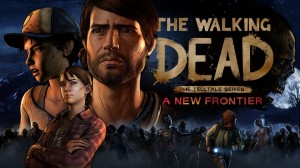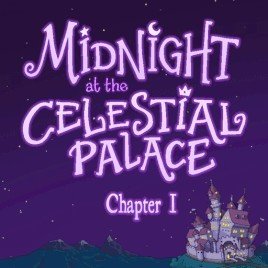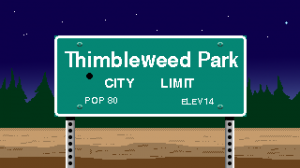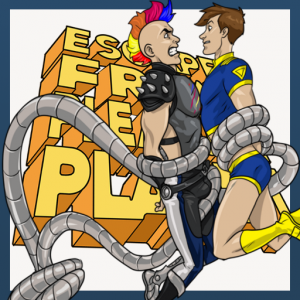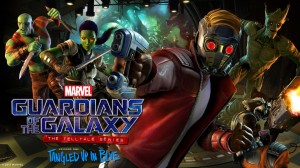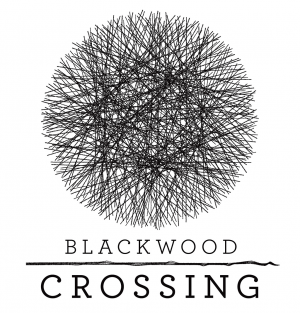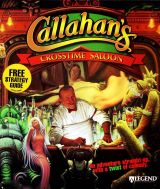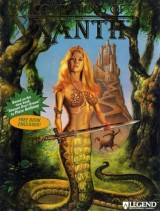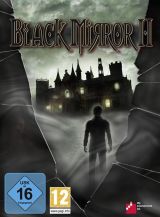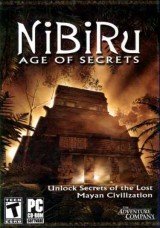Review for The Walking Dead: A New Frontier
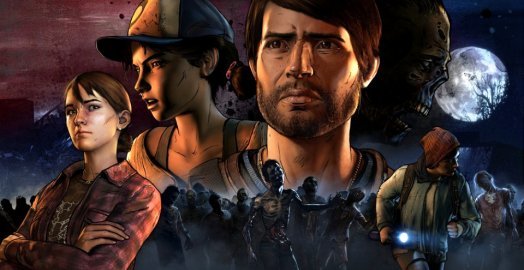
Like the shambling hordes for which it’s named, it’s impossible to keep The Walking Dead down. From Robert Kirkman’s ongoing graphic novel series to the long-running television show to Telltale’s adven… err, interactive storytelling experiences, zombies are everywhere! After two full seasons, plus a single bridge episode and a mini-season in between, Telltale has now completed their third five-part series pitting the living vs. the undead (and vs. the other living). Though the new season is subtitled A New Frontier, this iteration of The Walking Dead covers a whole lot of familiar ground. It looks a little glossier than ever, but otherwise this is essentially more of what we’ve seen before. Whether or not you consider that a good thing will depend largely on your appetite for revisiting the same themes with the same choice-driven, gameplay-lite approach that we’ve come to expect.
This season could well have been renamed “Los Muertos Vivientes”, as there’s a decidedly Spanish flavour this time around. Or it could be called “The Walking Dead: Family Edition”. Not in the fun-for-the-whole-family kind of way, of course. If anything, this season further ups the ante on an already gory and violent series with even more decapitations, dismemberments, and pulpy bashed-in-skulls. But where previous Walking Dead games have focused largely on strangers coming together, A New Frontier centers around one particular household desperately trying to cling to whatever final vestiges of familial bonds remain in a completely broken world. This is the very definition of a dysfunctional family at the best of times, and here they’re facing the worst.
The main protagonist is Javier, a young man whose extended family we see both physically and emotionally torn apart in the opening flashback scene. Fast-forward to today, and Javy is on the run with his sister-in-law Kate along with the children of his volatile brother David, having been separated from him in the initial confusion. Although others feature prominently in subsequent events, this is very much their story as we follow the four of them from the frying pan into the fire and back again repeatedly. Having survived this long on the run, soon they’ll find themselves trying to fit into a heavily-fortified town called Richmond. Its walls may be holding out an unprecedented “herd” of walkers, but it’s also holding in a growing and potentially deadly dissent. Conflict everywhere? Yup, this is The Walking Dead, all right.
Javy is a former baseball star who apparently skewered his own career in a gambling scandal. This backstory never really seems all that significant, but it does make him handy in a fight with an aluminum bat. Kate is a down-to-earth young woman simply trying to make the best of a horrible situation, though she may actually be better off being free of her husband, while Gabe is a brooding young teen and Mariana a remarkably grounded and surprisingly optimistic youngster who’s content enough to listen to music on her headphones and find some occasional chocolate. There’s nothing particularly remarkable about them, other than their circumstances, but it’s a family you can find yourself rooting for – knowing full well that in The Walking Dead, that may be a bad idea.
The other playable protagonist will be instantly recognizable to series fans, as young Clementine returns from the first two seasons. She’s a little older now, just entering adolescence (and all that entails for girls her age), though of course she has always been forced to be way more mature than her years. She’s also more hardened than before, with some serious trust issues – an entirely reasonable development in a savage world where simply staying alive is a day-to-day struggle, and any attempts at community have ended up with betrayal and heartbreak. A far cry from her earliest days under the protection of Lee, here she is comfortable swearing, stealing, and threatening people as need arises, all in the name of survival. Clem plays a vital role in Javier’s story once they meet up on less-than-friendly terms, but we also get glimpses into her past as we begin to piece together what happened since last we saw her.
In my game, the flashback sequences consisted of Clementine and baby AJ, whom Clem had taken under her wing at the end of season two. I say “my game” because A New Frontier gives players the chance to import saves from the previous season to resume the same narrative thread, or to create your own backstory with a series of decisions before you begin play (you can also have choices randomly made on your behalf). Having a sieve-like memory for details, I could barely recall how my previous actions had played out, and I found the initial options to be very difficult to choose between. I ended up with the “lone peacekeeper” role, so it’s possible your mileage may vary with different decisions made. Presumably none of it impacts present-day events, as AJ is conspicuous by his absence from the start, but it may well offer up some flashback variety.
As usual, the ever-present threat of walkers is a constant source of tension, but while the zombies may be the brainless monsters, it’s the worst of people who are often the heartless ones. There are upstanding characters too – or at least those willing to cooperate so long as it suits them – but soon enough you’ll find yourself caught in the middle of both personal and political conflicts with no cut-and-dried answers and no way to appease both sides. Timed choices are really the main gameplay element once again, and certain decisions are way more important than others. Some threaten the very foundation of your fragile little family, while others have literally life-and-death consequences – not just in terms of who survives, but who you personally kill at times, and in what fashion. The story will always circle back to the same narrative direction, but the heaviest of these choices will surely cause you to ponder tensely as the dialogue timer all-too-quickly winds down.
Many smaller decisions are once again “remembered” by the affected parties, whether for good or ill, though it isn’t always clear from a single playthrough how each choice impacts your relationships. I know some people resent Telltale games for the illusory nature of such choices, but I don’t mind so long as I feel the weight of my decisions the first time through. Not unlike life itself, you only get one crack to make spur-of-the-moment decisions, and must then live with the consequences without ever knowing how things might have turned out otherwise. And that is true here, more often than not.
Even some of the lesser choices have actual story ramifications, however, so they aren’t entirely cosmetic. Beyond the obvious what-happens-next reactions, Telltale has also taken a cumulative approach to player choice. While no one decision is likely to tip the scales in favour of one result or another, in some cases a pattern begins to emerge over time. Will you be accepting and supportive of Clementine, or fuel her initial distrust? Should you follow through on your growing romantic feelings towards Kate? Can you be a loving father to Kate’s kids, or continue to be the irresponsible slacker who once sought the easy way out? You don’t need to be 100% consistent in your answers, but they’re certainly being tracked and your roleplaying tendencies will win out in the end.
Where my acceptance of choice-and-consequence in A New Frontier breaks down somewhat is twofold. First, it’s not always clear from the options displayed what the protagonist’s actual response will be. One vital exchange I simply didn’t understand properly, leading to the exact opposite result that I would have selected. (An immediate restart fortunately took me back prior to the moment of truth, but waaaay farther back, requiring a lot of repetition to return to that point.) Another decision played out far differently (read: worse) than I anticipated as well. This time I plowed on anyway, hoping it wouldn’t have serious repercussions, and fortunately it didn’t seem to, as it had the potential to be disastrous. I also felt conflicted by one particular scenario – and a crucial one at that – NOT because I didn’t know what to choose but because I could tell that I was being played. In that situation, I was forced to select the option I didn’t want in order to get the result I desired. It worked, and to the game’s credit it actually allowed for that possibility in a later episode’s dialogue choice, but Javy’s reaction in the moment wasn’t at all true to my intent. If the developers truly believed that deception was a possibility, they did a poor job of accounting for it in the immediate aftermath.
My other reservation, and a favoured tendency of Telltale’s, is being continually confronted with a blatantly binary choice between two BAD options. Granted, that’s a very real possibility in a world gone terribly wrong, but it can feel excessively manipulative, especially when you’re immediately browbeaten for your choice no matter which option you select, as happens several times in A New Frontier. I am absolutely not advocating for “good” or “bad” choices instead, merely a more nuanced presentation of no-win scenarios. Always having to pick the lesser of two obvious evils and hoping for the best doesn’t feel like genuine player agency but rather that you’re a pawn in the storyteller’s sick joke.
In between the lengthy interactive conversations, there are a handful of standalone wander-around-and-explore situations at a junkyard, a makeshift town built on a former airstrip, and an abandoned gas station, among others. Here you’ll pick up an item or two to overcome an obstacle, but even these don’t really qualify as puzzles. The few hotspots are automatically highlighted by default, and there are so few interactive objects that their uses are blindingly apparent. It’s so easy that a walker could probably eat your brain and you could still finish this game before you turned. There is also some fighting to be done, once more in the form of Quick Time Events in which you must button-mash, swipe or timed-click your way through different encounters. It’s all fairly simple stuff, whether controlled by the keyboard/mouse or gamepad, but should you fail you’ll simply be returned to the beginning of the sequence to try again.
With gameplay taking a backseat, it’s the story and characters that represent the driving force once again. Unfortunately, there really isn’t much “story” here that we haven’t seen before. The names and faces have changed, but the formula has not. Javier and his family are simply trying to stay one step ahead of the traveling herds when they encroach on the territory of some ruthless thugs who turn out to be a gang known as the eponymous “New Frontier”. A nearby town offers at least the promise of help and sanctuary, but conflict is inevitable, both with the living and the undead. Where the story really packs a wallop, as it always does in this series, is its willingness to make death a very real and prominent feature. Obviously I won’t spoil anything, but suffice it to say that no one is ever truly safe in The Walking Dead.
Whether you’ll miss anyone who experiences an untimely demise remains to be seen. Besides Clementine, who has the benefit of ten previous episodes of character development, none of the new additions are particularly noteworthy. Javier’s sketchy background is alluded to once in a while, but never with enough conviction to make you think it’ll turn out to be important (and it doesn’t). There’s a welcome cultural diversity on display, and some of the newcomers seem like genuine people doing their best in trying times. Most of the villains, on the other hand, are nothing but bloodthirsty punks. Again, that’s probably realistic, and it’s a useful storytelling device to have someone to thoroughly hate, but I prefer a little more moral complexity. The one major character with ties to both Javy’s old family life and Richmond’s crumbling power hierarchy is clearly meant to introduce a few shades of grey, but he too ends up being such an unlikeable jerk that I couldn’t give a zombie’s infected arse what happened to him. That apathy robbed his story of much of the emotional impact it was clearly designed to impart.
Speaking of realism, A New Frontier takes the series a small step toward a more lifelike presentation, though it’s debatable whether that’s a good thing. Faces are now smoother and shinier, but this seems somewhat at odds with the thick black character outlines and sketch-style shading that hearken back to the series’ graphic novel origins. (I swear the lifelikeness became slightly less pronounced as the season wore on, but maybe I’m just imagining things). Lighting effects are much more prominent this time around, and the artists were eager to show them off, as much of the first episode takes place under the glow of moonlight, while the second installment includes a creepy tunnel crawl illuminated only by flashlight. Later we see the same scenes at various times of day, subtly adding to the visual variety. Otherwise, the game looks much the same as its predecessors, notable more for its highly cinematic style than for its actual set design.
Telltale has never failed to deliver a top-notch voice cast, and A New Frontier continues that perfect record. There are no new standouts, and somewhat surprisingly given the Latin influence, none of the characters are heavily accented. However, I’m still floored at how perfectly Melissa Hutchison always portrays Clementine, this time at yet another stage in her development. Another studio mainstay, Jared Emerson-Johnson supplies the score, though I found it to be understated to the point of near-irrelevance for long stretches. The music does ramp up nicely during the action scenes, mind you, creating a discordant backdrop to the chaotic battle sequences.
There are two main paths nearing the end of the series finale, each determined by a single choice and leading to its own distinct scenario. Triumph and tragedy await both courses (naturally), one of which felt like a devastating gut-punch (in a good way), and the other yielding nothing but ambivalence due to the person(s) involved. Apparently there’s an even better ending, in terms of toe tags required, though it seems this is only possible with a series of choices throughout the game that I’d never have made. I could be wrong about that, but if so it would be a disappointing design decision – and if not, then I don’t know how I might have achieved it, making it a moot point anyway. Either way, you’ll likely reach that end point about six or seven hours (and five months, for those of us following along episodically) after you begin, which is perhaps a little short for Telltale but in the same ballpark as before. If you want more after that, you can always replay with other decisions… or just wait until the openly-teased next series to come.
Taken on its own, A New Frontier is a perfectly decent new installment of The Walking Dead franchise. It’s got great production values, hard choices with brutal consequences, a highly cinematic presentation, lots of gruesome deaths, and more conflict than you can shake a baseball bat at. It also has the one thing you probably merely tolerate from Telltale: namely, the lack of any substantial gameplay. But as the third (and a half, counting Michonne) season in the long-running series, the formula is definitely starting to be stretched thin. There’s only so much you can do with such a restrictive setting, after all. Even some of the tactics are beginning to repeat, like smearing yourself with stinky zombie guts. The family dynamics add a little variety to well-worn tropes, but not as much as you might think, given that “family” is what you make it in this post-apocalyptic world. With no real surprises and fewer likeable characters this time around, you’re certainly not in for an original time, with so many familiar elements being repackaged. But if you have a craving for a little complex relational drama in between a bit of mindless brain-bashing, and you don’t mind the near-total absence of anything traditionally adventure-like, then A New Frontier should give you plenty to chew on once again.
WHERE CAN I DOWNLOAD The Walking Dead: A New Frontier
The Walking Dead: A New Frontier is available at:
- GOG -75%
- Steam
- Epic Games




